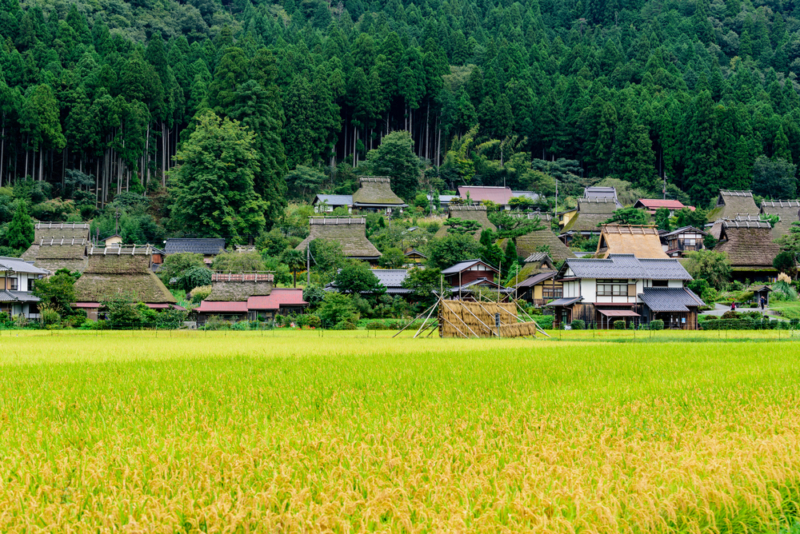Most people want to live in the big metropolitan cities of Japan. They’re fascinated by the high tech, the sheer number of people, the innovation. But what if we told you Japan has much more than that in store outside of the big cities? In this article, we go over all the reasons why it could actually be better to live out in the Japanese countryside, told by someone who grew up in metropolises all her life. From the cost of living to opportunities to speak Japanese, here’s what you ought to consider before making the move to Japan!
What Do We Mean by “Rural Japan”?
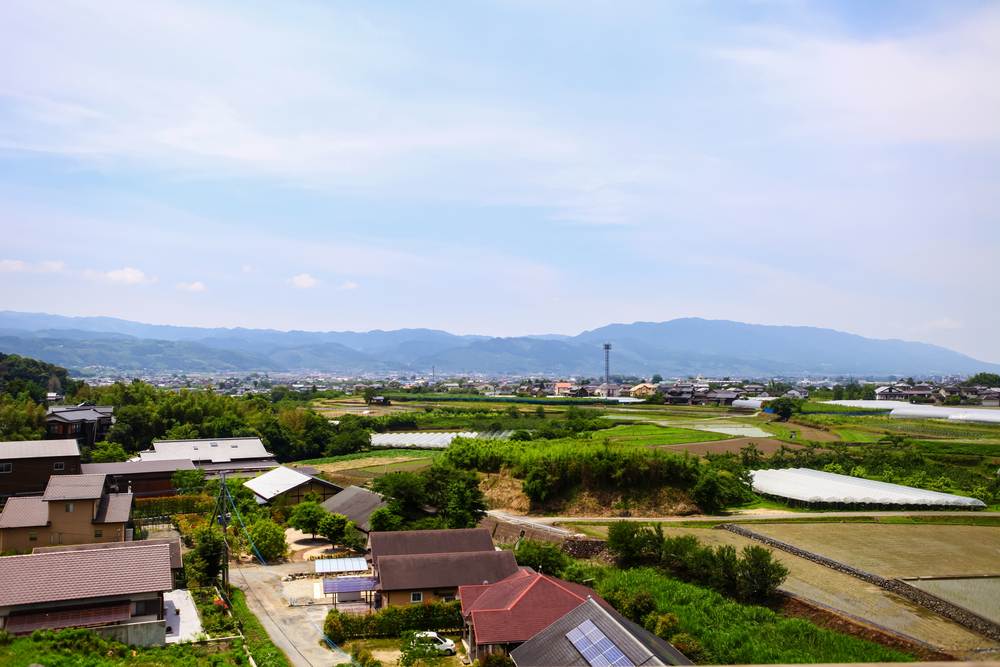
People define “rural” in many different ways. For some, it means being in the middle of nowhere, with the nearest convenience store being a 15-minute walk away. In this article, we define “rural” as anywhere outside of a big city. So, anywhere that isn’t Fukuoka, Tokyo, Osaka, Kyoto, Sapporo… We think you get the gist.
Now that you have a clear idea of what we mean by “rural Japan,” let’s get into everything that makes living in the Japanese countryside great.
1. Watch Your Japanese Rapidly Improve

There are far fewer foreigners and tourists in the regional areas of Japan compared to big cities. As such, you’ll find a lot less multilingual support, whether it be in customer service or signage. If you want to get around on your own, you’ll need to tap into all the Japanese knowledge that you have, and it’s this constant practice that will help you rapidly improve your Japanese skills.
I used to live in Okayama City. Although it is a larger city compared to many others, it is still considered “rural” by the people of Tokyo or Osaka. There was multilingual signage and services in the center of the city, but little support outside of it. All of my neighbors were Japanese and not a single one of them spoke English. With just enough Japanese knowledge to handle basic daily conversations, I found myself struggling with many aspects of life, from transportation to grocery shopping. However, all of this hardship came with a benefit. In just under a year, my Japanese skills improved so rapidly that I managed to pass N2 of the JLPT (Japanese Language Proficiency Test)!
2. The Cost of Living Is Much Lower in Rural Japan

From groceries to rent, you’ll find that you can get way more for your yen in rural Japan than you can in the big city. According to a 2007 report on the cost of living for each prefecture by the Statistics Bureau of Japan, the top five most expensive prefectures were:
- Tokyo
- Kanagawa
- Kyoto
- Osaka
- Hyogo
While the top five cheapest prefectures were:
- Ehime
- Kumamoto
- Miyazaki
- Gunma
- Okinawa
With the exception of Okinawa, all the cheapest prefectures are considered “rural” by the Japanese, with significantly smaller populations compared to the expensive prefectures.
Those coming to Japan to work an entry-level job should definitely take this into consideration before accepting any job offer. Unlike many other countries, new graduates in Japan typically still live with their parents, so they normally don’t have to worry about rent or even groceries. Because of this, starting salaries are normally set pretty low. In big cities, it can be difficult to make ends meet on this salary without additional help from your company, such as a housing allowance. Click here to see around how much life in Tokyo costs as a reference.
3. It’s Much Easier to Make Friends With the Locals

The smaller the town, the easier it is to get to know everyone and make friends with the locals. They’ll be curious about you, and even more so if you happen to be the only foreigner there! If your goal is to get to know the locals and make Japanese friends, living and working in the Japanese countryside is one of the best ways to achieve it.
By the end of my time in Okayama, I had regular conversations with the neighbors and knew all their dogs’ names. I would occasionally give them extras that I cooked and they gave me portions of their harvests in return! Years later, I still have a good chat with them whenever I return.
4. Life Is More Relaxed
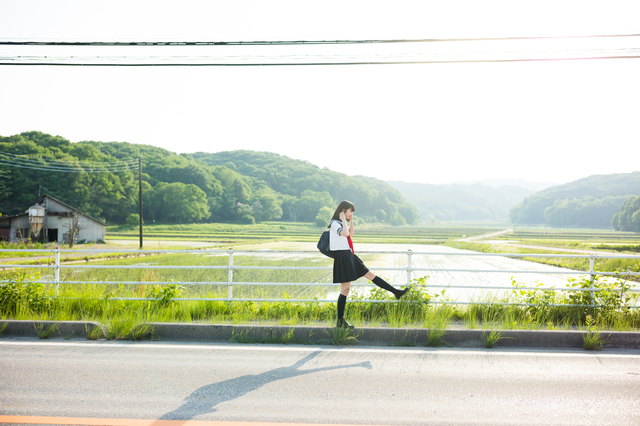
Life just feels a lot more chill in regional Japan.
For starters, you don’t have to worry about the commute. In big cities, sometimes the trains get so packed that the station staff actually have to push you in to shut the train doors! Even if you commute by car, occasionally the lanes get so crowded that you could be stuck for over an hour.
The lower cost of living also means that you’re able to afford more luxuries and generally have a better quality of life. Sure, you might be further away from all the fun that a big city can provide, but most rural towns are within two hours of a big city, so excitement is almost never too far away.
Add the lack of commute, noise, and pollution into the mix, and you’ve got the perfect setup for a surprisingly comfortable life.
5. You’ll Get to See the “Real” Japan
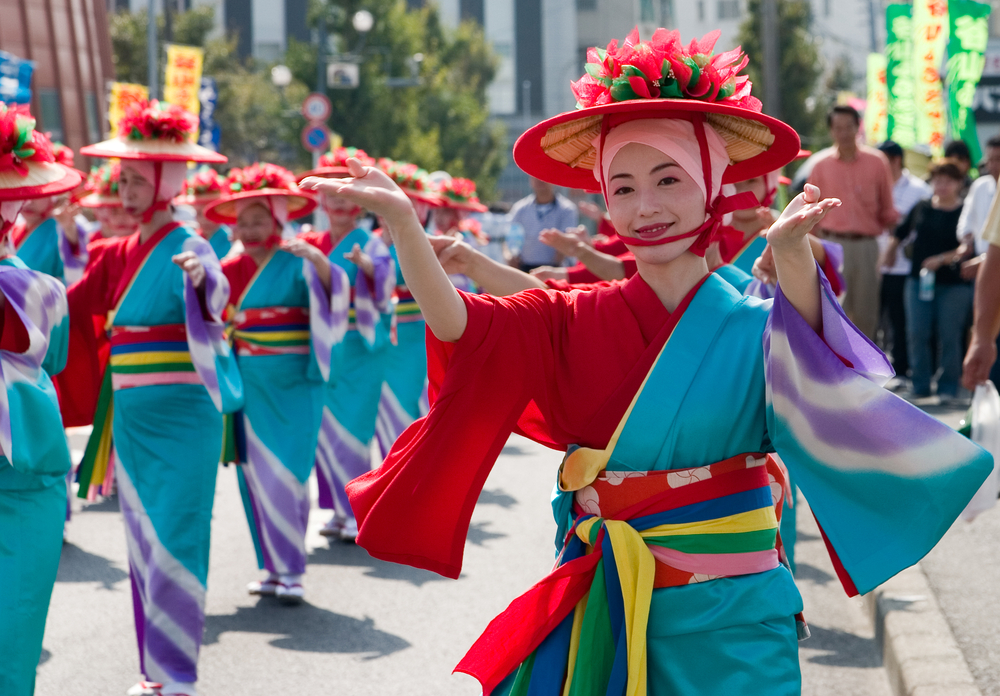
While one may argue that every single part of Japan is, well, Japan, the truth of the matter is that the traditional parts of the country and culture have taken a backseat to modernization in Japan’s big cities.
In rural areas, however, you’ll find the Japan of the old still vibrant and alive. Festivals abound throughout the year, and people still take part in old rituals and ceremonies. There are far more people doing things the “traditional way,” and it is a joy to see and experience.
6. Be One With Nature
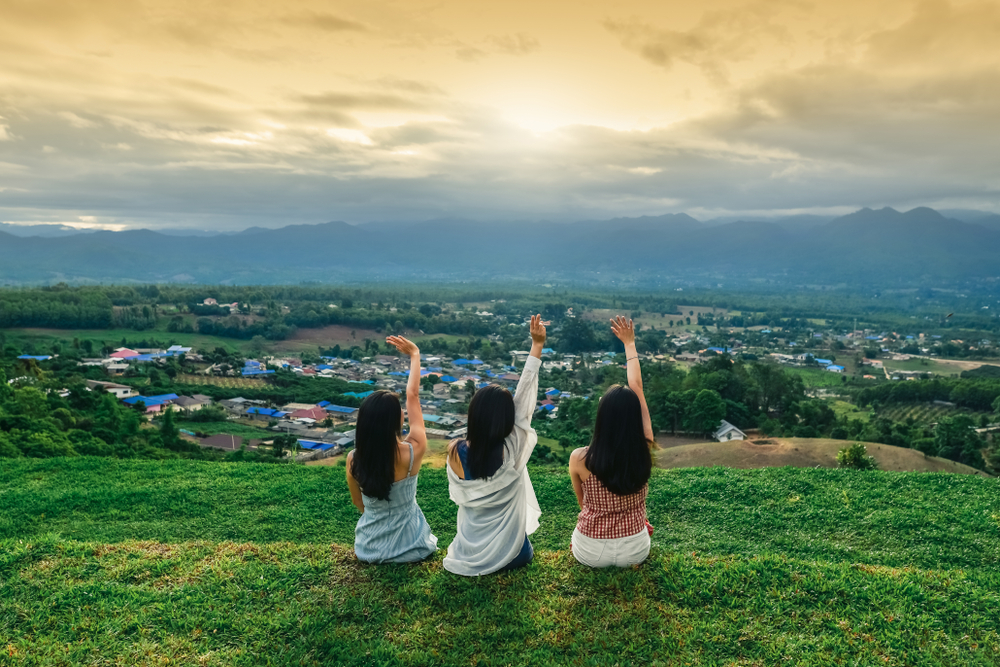
In more rural parts of Japan, you’re just a short walk away from a field, mountain, forest, or beach. There’s something magical, even therapeutic, about being in an area where the air is always fresh and there’s greenery or sand and waves around you. I had to wake up very early every day for work, but it was somehow easier to do so in Okayama because I could traipse through a rice field and see ducks wade in the nearby river on the way.
7. It Could Actually Be Easier to Get a Job?!

One of the most common ways English-speaking expats enter Japan is by becoming an English teacher. The JET (Japan Exchange and Teaching Programme) is said to be the golden ticket into Japan and its English-teaching industry, and gets thousands of applicants every year, most of whom ask to be placed into a large city. Similar programs get the same request time and time again. However, there are actually many parts of Japan that need English teachers, including more rural areas, and people who are willing to work in these more remote areas have a greater possibility of being accepted into the program.
It’s a simple case of demand and supply, and that applies to many other jobs in rural Japan. While the number of jobs available is certainly fewer than what you’ll find in the bigger cities, there’s also fewer applicants, so your chances of getting the job (and visa!) could actually be greater than the big city, especially if you have a more niche skill set.
Real-Life Testimonies From Expats in Japan
But hey, don’t just take our word for it. We ran a little survey through our readers and writers to see just what they had to say about living and working in the Japanese countryside! Here’s what some of them had to say:
■ Pierre (Canada)
Where in Japan did you live/work?
Fukui City, Fukui Prefecture
What did you like about rural Japan?
The close-knit community.
Do you prefer living and working in rural Japan or the big cities?
Rural Japan, because I feel like I have more opportunities here since there are less people with a similar background.
Do you have any advice for someone thinking about moving to rural Japan?
Always keep an open mind and think of everything as a learning opportunity!
■ Chris (USA)
Where in Japan did you live/work?
Zushi City, Kanagawa Prefecture
What did you like about rural Japan?
Nature is close by. Also, it is quieter and people remember your face. It feels more like a community than just a place to live. Also, there is a local farmers market every day where you can buy locally-grown vegetables.
Do you prefer living and working in rural Japan or the big cities?
I prefer living and working in rural Japan for the reasons above.
Do you have any advice for someone thinking about moving to rural Japan?
Get involved with the community by volunteering or participating in local activities. Start a hobby that involves being outdoors.
■ Kai Le (Singapore)
Where in Japan did you live/work?
Kumamoto City, Kumamoto Prefecture
What did you like about rural Japan?
Close to the blessings of nature. People were warm and friendly. Delicious local delicacies!
Do you prefer living and working in rural Japan or the big cities?
I prefer living and working in rural Japan. I think the pace of living is less stressful, Kumamoto City wasn’t as crowded as Fukuoka City, and it’s easier to build connections.
Do you have any advice for someone thinking about moving to rural Japan?
Japanese people are generally nice and kind, so ask for help if you need it!
■ Alena (Germany)
Where in Japan did you live/work?
Hongu Town, Wakayama Prefecture
What did you like about rural Japan?
Clean air, fresh water, clean rivers, less rubbish, fresh fruits and vegetables from my farmer neighbors, a lot of space and not many people, easy and fast access to the mountains and forests, easy access to outdoor activities like hiking, and easy to practice Shugendo.
Do you prefer living and working in rural Japan or the big cities?
I prefer living and working in rural Japan for the reasons above. Plus the scenery is lovely, very green. The lifestyle is slow and gentle.
Do you have any advice for someone thinking about moving to rural Japan?
Think about what you can do for income since there are few employment options there, especially now that the tourism and hospitality industry is suffering from the impact of the corona crisis. Plus, ideally speak some Japanese and make some friends there before moving, for example by visiting the area before actually moving there. Build connections and ideally find someone who is able to help you with introductions. It is not easy to find a house to rent without local contacts.
Give Rural Japan a Chance!
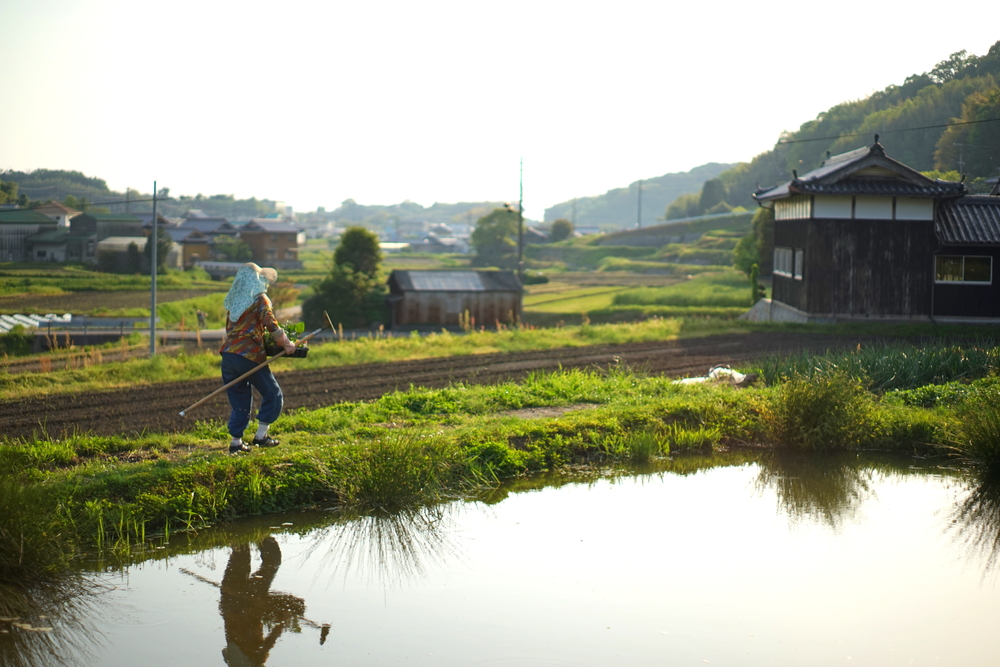
There are good and bad points when it comes to living in more rural areas anywhere in the world. While the decision is definitely yours to make at the end of the day, we hope this article has helped you see rural Japan in a new, more positive light. And if you do decide to live and work in regional Japan after reading this article, we hope it’ll treat you as well as it has treated us!
If you want to give feedback on any of our articles, you have an idea that you’d really like to see come to life, or you just have a question on Japan, hit us up on our Facebook!
The information in this article is accurate at the time of publication.
